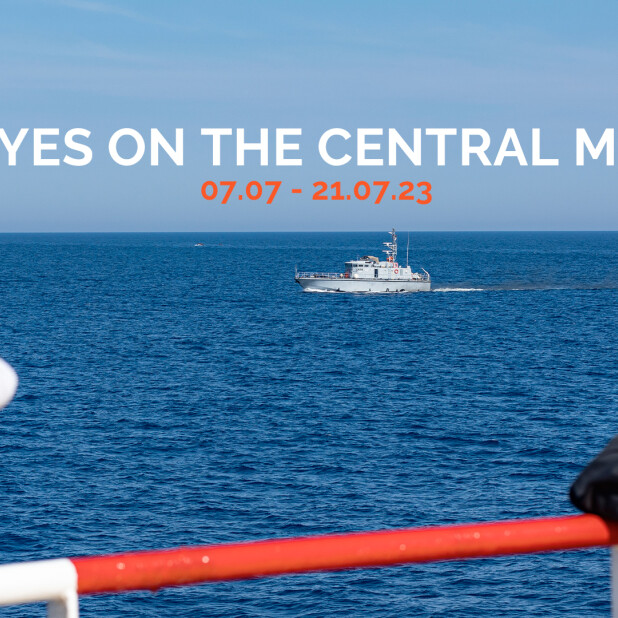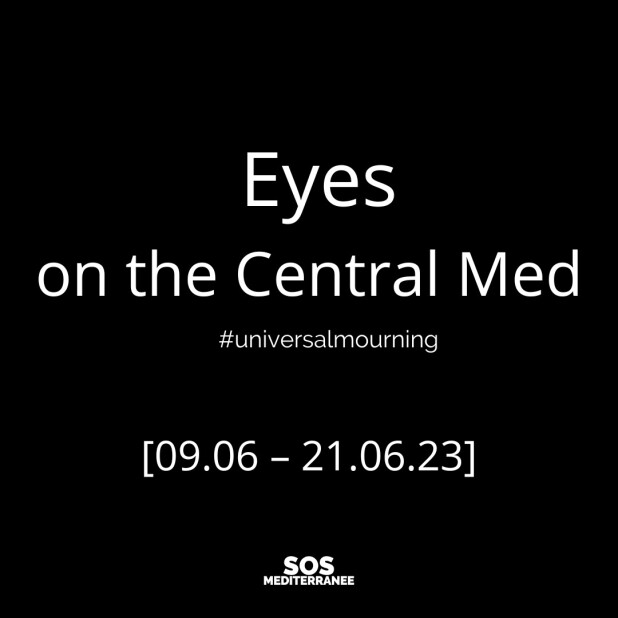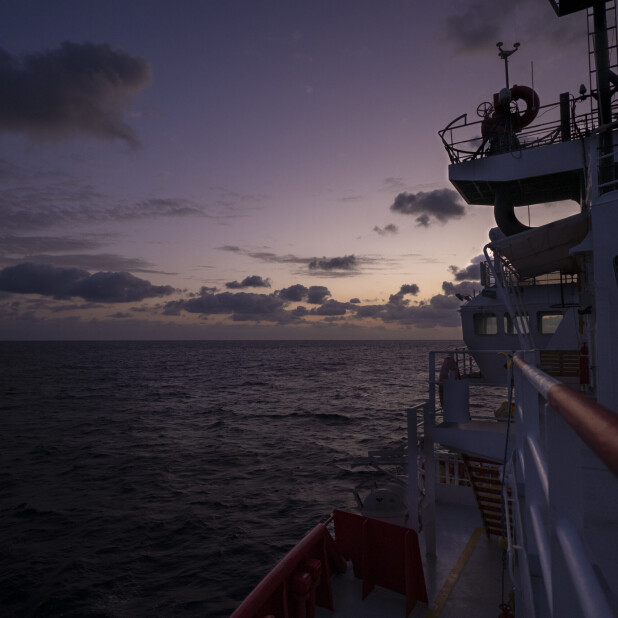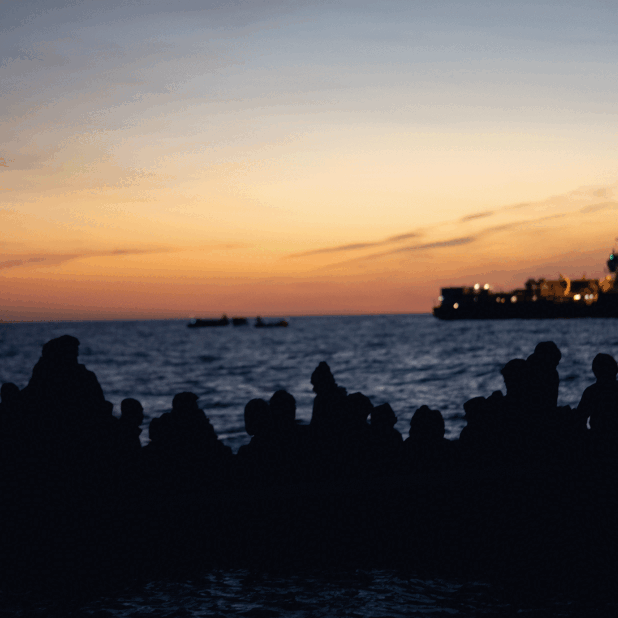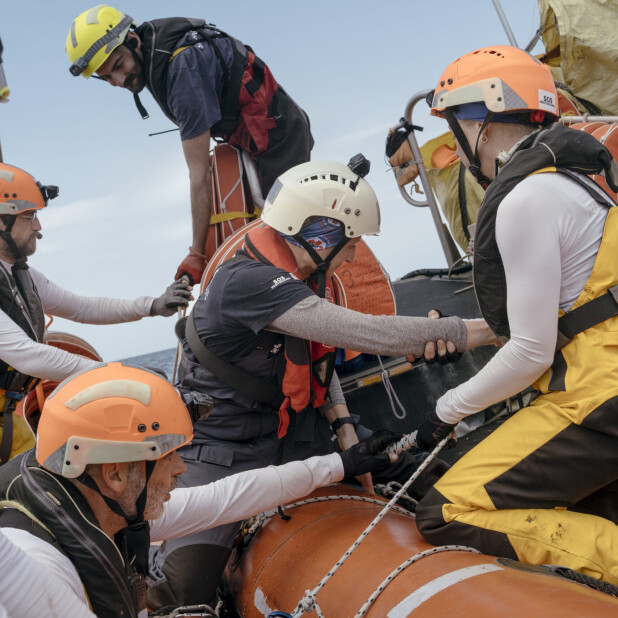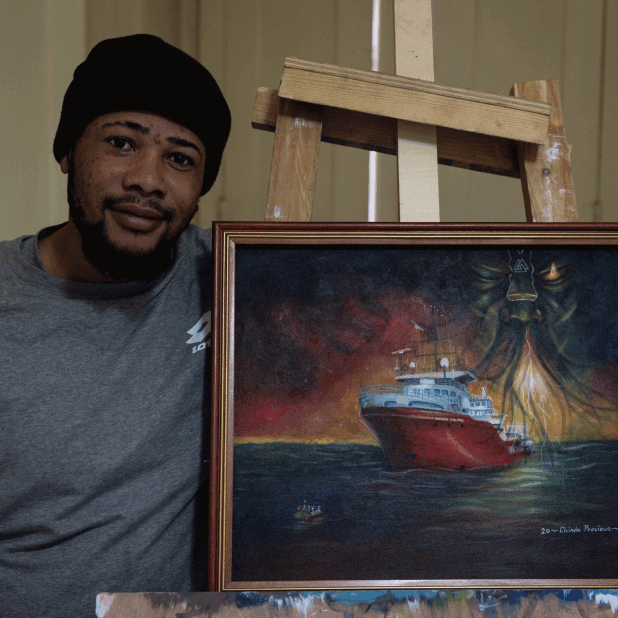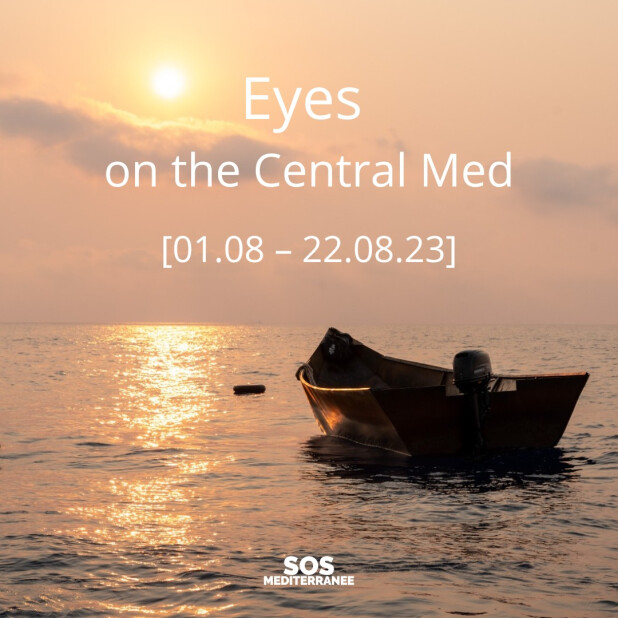
[19.01 – 01.02.23] The following publication by SOS MEDITERRANEE intends to shed light on events which unfolded in the central Mediterranean in the past weeks. It is not intended to be exhaustive, but rather to provide a general update on maritime search-and-rescue-related matters occurring in the area we have been operating in since 2016, based on public reports by different NGOs, international organisations and the international press.
Civil NGO ships covering the void left by EU members States, threatened by Libyan Coast Guards
On January 21, according to Italian journalist of Radio Radicale Sergio Scandura, 43 people were rescued by tanker Iblea off Benghazi, Libya, following an alert sent by the civil hotline Alarm Phone. The rescue operation was reportedly coordinated by the Italian Maritime Rescue Coordination Centre, which assigned Augusta, Italy, as place of safety. The 43 survivors were then transferred to Taranto, Italy.
On January 24, while Patrolling the Libyan Search and Rescue Region, the Geo Barents operated by Médecins Sans Frontières (MSF) witnessed an interception of a boat in distress by Libyan Coast Guards. While approaching the scene with people jumping off the boat, the team onboard GeoBarents was threatened with being shot if they stayed in the area.
The same day, after almost a year of blockade, Sea Bird 2 aircraft, operated by the German NGO Sea-Watch, spotted three boats in distress, two of them being intercepted by the Libyan Coast Guards. The third boat was rescued by the Geo Barents. The 69 survivors, including 9 women and 25 minors were only authorized to disembark 100 hours of navigation away from where their rescue took place, in the Italian port of La Spezia.
On the way to the designated port of disembarkation, on January 25, Geo Barents conducted two other rescue operations, following distress alerts sent by the civil network Alarm Phone. A total of 61 persons, including 13 women and 24 minors – the youngest one being less than 1 year old – were rescued from an overcrowded rubber boat.
In the second operation, 107 persons were rescued from another overcrowded rubber boat in distress in International waters off Libya, including 5 women and 36 minors. The 237 survivors disembarked in La Spezia on January 28. According to the Italian newspaper La Repubblica, the unaccompanied minors were later sent to Foggia by bus, 800 kilometers south of La Spezia, closer to where the survivors were first rescued.
In the meantime, on January 25, the teams onboard the Ocean Viking engaged in a complex rescue operation, evacuating 95 survivors from an overcrowded blue rubber boat in International waters off Libya, following a distress alert relayed by the aircraft Sea Bird 2.
While the rescue operation was ongoing, a Libyan Coast Guard patrol vessel arrived on scene, interfering with the operation and compromising teams’ and survivors’ safety with dangerous maneuvers.
Four lives lost, unsearched by Libyan Coast Guard patrol vessels
Once safely on board, survivors reported that at least twelve people fell overboard from the rubber boat before the Ocean Viking’s team arrival. People remaining onboard the unseaworthy dinghy could recover eight persons, but four remained unaccounted for. SOS MEDITERRANEE team searched for them with fast rescue boats and an active lookout from the Bridge until it was completely dark, to no avail. Two Libyan patrol vessels in the area were informed of the search and left without replying to Ocean Viking’s requests to support the search for the missing persons.
Later that day, Italian maritime authorities assigned the port of Carrara, in the North of Italy to disembark the survivors 1,500 km away from the area of operations, entailing a 3-day navigation and exposing women, men and children to waves, rain, wind and cold. The 95 survivors onboard Ocean Viking could eventually reach safety in Carrara on January 29.
Tragic shipwrecks off Libya and Tunisia claim numerous lives
According to the International Organisation Migration (IOM), two bodies were retrieved off Ejdabiya, Libya, on January 16.
A boat carrying at least 150 people capsized off the town of Garabulli, Libya on January 24. At least eight people died while 58 others were still missing, according to the Libyan Red Crescent. The 84 survivors of the shipwreck were taken to “government-run detention centers for migrants.”
In the night between January 28 and 29, another shipwreck mourned the central Mediterranean: according to the Italian press agency ANSAmed, at least 13 people went missing after their boat sank off Louata, in Sfax, Tunisia while Tunisian coast guards could recover 24 survivors.
Italy to provide five “fully equipped” boats to Libya’s Coast Guard while interceptions and forced returns to Libya persist
In total, between 15 and 28 January, 331 men, children and women were intercepted by Libyan maritime authorities and forcibly returned to Libya according to the International Organisation Migration (IOM) – in the period of 15 – 21 January 2023, no interceptions occurred.
Meanwhile, on January 28, during an official visit in Libya of several representatives of the Italian government, including the Italians Prime Minister and Ministor of Interior, it has been announced that Italy would provide five “fully equipped” boats to Libya’s coast guard,” to help stem the flow of migrants to the European shores” according to the press agency Associated Press.
At the outcome of the hearing on November 10, 2022, the Court of Appeal of Naples has confirmed the conviction of the captain of the private ship Asso 28 of the Augusta Offshore company for having brought back to Libya over one hundred people rescued at sea. The Court of Appeal confirmed the decision of the Court of Naples which had considered that the conduct of the captain integrated the crimes of “disembarkation and arbitrary abandonment of people” and of “abandonment of minor”.
The events took place on 30 July 2018, where Augusta Offshore tugboat, the Ace 28, operating in support of the Sabratha platform – was alerted of the presence of a boat with 101 people onboard. The Ace 28 reportedly intercepted the dinghy, disembarking the survivors at the port of Tripoli.
The European Council questions the new Italian Decree Law
On January 30, an Expert Council of the Conference of INGOs of the Council of Europe issued an Opinion on the Italian Decree Law No. 1, signed on January 2, 2023, which relates to Search and Rescue operations in the Mediterranean. The Expert Council recommends the Italian Government to “proceed with effective consultations with civil society groups most affected (particularly search and rescue NGOs) prior to taking any steps to translate Decree Law No. 1/2023 into a formal piece of legislation.” Furthermore, the Council of Europe calls the Italian Government to “revoke it [the decree] until such time that such consultations can take place, and until adequate and effective steps are taken to ensure that migrants’ lives are not being put at risk by the inability of search and rescue NGOs to work effectively.”
Following the issued Opinion, the Commissioner for Human Rights of the Council of Europe, Dunja Mijatović, sent in a letter to the Italian interior minister Matteo Piantedosi calling the Italian government to withdraw or revise decree law 1/2023 providing for the regulation of the activities of vessels dedicated to Search and Rescue in the Mediterranean.: “I am concerned that the application of some of these rules could hinder the provision of life-saving assistance by NGOs in the Central Mediterranean and, therefore, may be at variance with Italy’s obligations under human rights and international law”, she wrote.
Photo Credit: Nissim Gasteli / SOS MEDITERANEE

